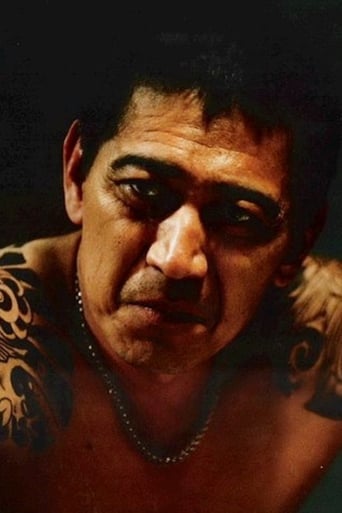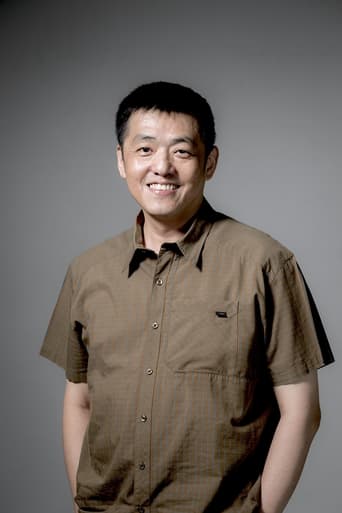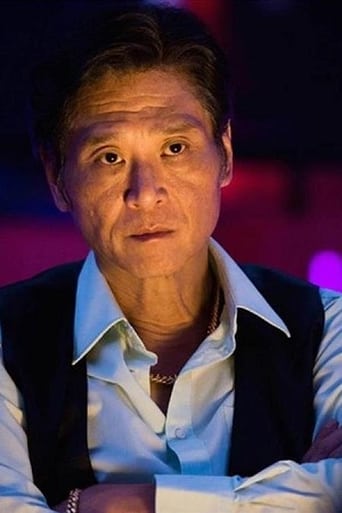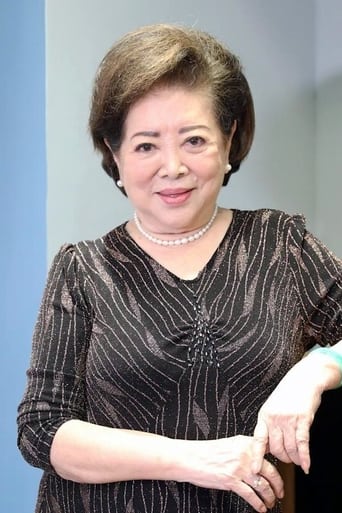Comwayon
A Disappointing Continuation
ChicDragon
It's a mild crowd pleaser for people who are exhausted by blockbusters.
Brennan Camacho
Mostly, the movie is committed to the value of a good time.
Phillipa
Strong acting helps the film overcome an uncertain premise and create characters that hold our attention absolutely.
PiranianRose
This movie achieved substantial impact on me, in a good way. Firstly, it's the first Hou Hsiou Hsien film that I have been able to sit through in its entirety. As much as I claim to admire film as art, I will not ever consider giving FLOWERS OF SHANGHAI another attempt. Secondly, I now see Hou Hsiou Hsien as one of the most respectable craftsman in cinema, even more admirable than Zhang Yimou from China or my personal favorite, Wong Kar Wai from HK, and I'll give my reasons. Zhang and Wong take risks with their creations, but they are relatively easy to grasp, and even have some entertainment values. For example, Zhang's TO LIVE is an emotionally heavy drama that spans several generations before, during, and after Cultural Revolution. Even if one doesn't have taste for art films, one could enjoy its sheer melodrama. In the case of Wong, his Chungking Express has a huge cult following. It has a sweet touch of spontaneity that makes it watchable to anyone, although the disconnected storytelling could throw some people off.So Zhang can do intense drama, and Wong can direct spontaneous acting. Hou Hsiou Hsien (or his colleagues Tsai Ming Liang and Edward Yang), however, is of a different breed. His films (that I've seen anyway) are casual but deliberately never ever strive to be interesting. For example, there's no moody music, showy cinematography, or thought-provoking dialogue to spice things up while you watch a 2-minute long take of people walking. Everything is just as indifferent as it is and nothing more; then it's up to us to give it a meaning -- that is the essence of MINIMALISM which define Hou's body of work. Minimalist cinema is by far the most difficult to grasp and sit through (since "nothing happens," some will understandably accuse), and many viewers detest it with a passion. Whether this style is actually effective I do not know, "all I know is this: once I was blind and now I can see." Good Men Good Women is an eye opener for me.In recent years, several well-noted Chinese art house filmmakers have upgraded to generously budgeted blockbusters: Ang Lee with Crouching Tiger, Zhang Yimou with Hero and Flying Dagger, He Ping with Warriors of Heaven & Earth, Fruit Chan with Three Extremes: Dumpling, not to forget Cheng Kaige's special effects fantasy extravaganza The Promise on the way, followed by Wong Kar Wai reportedly to film an American feature The Lady from Shanghai with Nicole Kidman, and words of Hou's Taiwanese colleague Edward Yang to direct an animation produced by Jackie Chan. In such a relaxing trend, will Hou Hsiou Hsien have any surprises for us, or will he continue to explore Taiwan in minimalist glory?
nycsean
I was introduced to Hou Hsiao-Hsien by Flowers of Shanghai, an exquisite piece of work that spoke of a mature film maker, who had mastered his visual language. I imagine that it would be a similar experience to an introduction to Wong kar Wai or Almovodar with In the Mood for Love or All About My Mother, respectively being pieces where an good director became a great. You finish these types of films wondering where did he (the director) come from intellectually, and where is he going.Hou's style is subtle, an excellent cinematographer and picture taker, like many of the Asian films (whether this is from a common thread or by accident I don't know). He is not as overtly stylish as Wong Kar-Wai, but the shots he takes and chooses (perhaps the better adjective) are beautiful.A previous commentator called this style "cinematic masturbation", which I think is an adolescent argument. Just because the points don't hit you over the head doesn't mean they are not being made. This is a political film, dealing with a still sensitive topic. The director definitely cares about the audience. Like anything else, it's the little details that count. One of those little details is an Ozu film being played on TV in one background shot. Hou has consciously acknowledged Ozu as an influence and his style shows it. The action, so to speak, takes place within the context of the everyday events. The points being made are observed by the routine actions, and unique touches within them.The most solid point being the commonality of loss, and tragedy between two Taiwanese actresses of different generations. Both lose lovers, and sacrifice children to the events around them.The other point is the simultaneous affluence and emptiness is modern day life. The actress in the older story is based on a real person, who joined the anti-Japanese resistance in China during WWII. After this, her husband is executed in an anti-communist crackdown in Taiwan. She is both pushed along by events, but shows a determination to live her life and make decisions, This is in contrast to the other story, that of the actress playing (there is a movie within a movie), who is looking back on a life with petty gangsters, drinking and drugs. In material goods she is richer than the older actress ever was, with her upper middle class life, yet poorer in far more many ways. Both are played by the same actress, who handles the two stories well. In the Hou portfolio, I prefer this to Goodbye South Goodbye, which I felt got a little lost in fancy camera work, but I feel that this is close to Flowers of Shanghai.
Howard Schumann
Encouraged by American foreign policy, the Kuomintang government in Taiwan in the 1950s began a policy of repression of real or suspected communists who were rounded up by the military police, detained, and often shot. This event, known as the White Terror, was suppressed in Taiwan, along with the 2-28-47 massacres, without any public discussion for forty years. Only the trees were witnesses and the story could not be told until martial law was lifted in 1987, yet even now remains clouded with hints of undisclosed crimes. Hou Hsiao-hsien's 1995 film Good Men, Good Women dramatizes the Taiwanese people's fear and reluctance to deal with their past, showing the effects of Taiwan's forgotten history on the destiny of an actress in present-day Taiwan. Dedicated to all the political victims of the 1950s, the film uses the device of a "film within a film" to tell the story of real-life activists Chiang Bi-Yu (also played by Inoh) and her husband Hao-Tung (Giong Lim) who fought in China against the Japanese during World War II but were arrested as Communists when they came home.
Good Men, Good Women takes place in three different time sequences: the contemporary world of actress Liang Ching (Annie Shizuka Inoh), her recollection of her recent past as a drug-addicted barmaid, and the world of a yet to be made film about resistance fighters in the 1940s. Hou suggests a contrast between the sterile, corrupt lives of the present generation and the young people of the past who acted with a social conscience. While it is a complex and elliptical film, it is one of Hou's greatest, filled with tenderness and sensuality and an aching melancholy for a world whose promise has remained unfulfilled. The film opens with a parade of young people dressed as peasants who march toward the camera singing a joyous song: "When yesterday's sadness is about to die. When tomorrow's good cheer is marching towards us. Then people say, don't cry. So why don't we sing." The camera then cuts to present day Taipei where an unidentified caller telephones Liang Chang but refuses to speak. The caller has stolen her diaries, and faxes her the pages daily prompting her to recall her tragic relationship with Ah Wei (Jack Kao), a gangster who died in a shootout. The film intersperses scenes of intimacy between the two lovers with the world of the 1940s where Chiang Bi-Yu and Hao-Tung, have left Taiwan for the Chinese mainland to support the anti-Japanese resistance. The "film within a film" shows how Chiang and Hao are forced to put their children in foster care and Liang identifies with Chiang, drawing parallels from her own experience of having to give up the things she loved the most.Hou shows that events buried in a nation's past can have far reaching consequences and that history may be indistinguishable from personal memory. Yet the film is not one of ideas but of images and Hou has provided some memorable ones; for example, when Liang sits before a mirror putting on her makeup as Ah Wei sits closely beside her talking about the possibility of her being pregnant. It is a mundane event, yet Hou imparts it with a mysterious and timeless quality. In many ways, Good Men, Good Women is typical of Hou's films with its static camera, long takes, and rhythms of everyday life, yet it is also his most political, a searing indictment of the squandering of a nation's heritage, allowing us to see that a country, like its people, cannot redeem its future until it tells the truth about its past.
lingmeister
Director Hsiao-hsien Hou seem to be fascinated with the disconnected newer generations in contemporary Taiwan, including it in other films like "Goodbye South, Goodbye". In this film, he takes on the period after the Nationalist retrieved to Taiwan and parallels it with the modern day, putting one story in another as a story which the film is to be based on within a film. In both stories, it is about the turbulent times in which the people as a whole act self destructively, either doing what they think is right as in the Nationalist government or due to their disassociation with the rest of society. The anonymous faxes in the modern period seem to be an indication that incidences either swept behind or intentionally forgotten will come back to haunt you until the issue is confronted. A message that the brutality that happened after the Nationalist's arrival in Taiwan should not be forgotten or ignored, but should eventually be dealt with.This is a movie that bravely confronts issues in a country that is too preoccupied with trying to juggle for positions in the global market. A reminder to everyone that a country's history does not consist of only the valiant highlights, but also of shameful past that should not be discarded.





